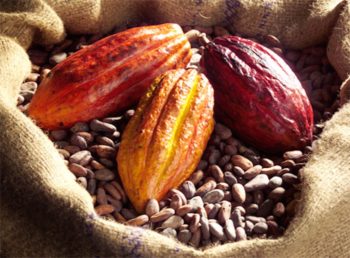
The Executive Director, Nigerian Export Promotion Council (NEPC), Olusegun Awolowo, says the Federal Government has developed “Conduits of Excellence (CoE)’’ to ensure consistent and stringent quality management for all exportable products.
Awolowo said in Abuja on Sunday that the Federal Government had also set up a committee for the realisation of the objective.
According to him, the committee will work under the technical guidance of United Nations Industrial Development Organisation, UNIDO.
He also said the committee would also develop the code of practice and Standard Operating Procedure (SOP), for production and processing of selected products.
Awolowo explained that government initiated the National Quality Infrastructure Project (NQIP), and conduit of excellence to ensure that an enabling environment and materials were provided to enhance quality and standards.
According to him, the Standards Organization of Nigeria (SON), has two new laboratories for product testing in the country.
He said that the issues of packing and labelling were also being looked into in enhancing acceptability of Nigerian products in the international market.
Awolowo said Nigeria became serious to address the rejection of Nigerian products, when the EU in 2016 placed a temporary suspension on the export of beans from Nigeria.
He attributed the problem mainly to inappropriate residues and aflatoxin.
Aflatoxin refers to any of several carcinogenic mycotoxins that are produced, especially in stored agricultural crops, for example peanut by moulds.
“We must realise that the EU has programmed a system tagged “Rapid Alert’’ which triggers any slight indication of residual anomaly in imports into EU,’’ he said.
Awolowo said that in response to the challenge, the council brought together 17 other agencies and the Organized Private Sector (OPS), to form an Inter-Agency Technical Committee on Zero Reject.
According to him, the inter-agency committee has been transformed to the Inter-Ministerial Committee on Zero Reject of Nigerian Products under the supervision of Ministers of Agriculture, and Trade and Investment.
Awolowo further said the committee developed an “Export Control Plan” requested by the EU as a pre-condition for lifting the suspension of beans export to the EU.
According to him, inappropriate use of agro- chemical has been addressed in the document produced in the Inter-Agency technical committee on zero reject.
He said that the recommendations as contained in the document were presently being implemented by relevant agencies to develop a training manual on application of pesticides.
“Under the Conduits of Excellence (CoE) and code of practice model, the appropriate use of agro-chemicals has been addressed.
“The model envisages a strong collaboration among farmers, extension officers, laboratory facilities, warehouse providers and marketers.
“It ensures that exporters can only source and export products from the CoE certified system.
“Already, an MOU has been signed among private sector operators under the CoE seamless working relationship.’’
Awolowo said most of the products rejected in the EU were exported by micro SMEs, who he said had no knowledge of export procedure and documentation.
“They do not follow the formal and approved procedures of export or seek the services of regulating authorities,’’ he said.
He also identified inappropriate use of agro-chemicals in the farming and inappropriate preservation of agricultural products and illegal export among others as possible causes of EU rejection of products from the country.
Awolowo said the country could address these problems with training and re-training of farmers, middlemen and exporters on logistics, on best international practices.
He expressed optimism that the training would create awareness on acceptable chemicals for preservation, mode of application, time of application and quantity to be administered among others.
Awolowo said the council was undertaking measures to ensure that Nigerian exporters maintain international standard requirements, including capacity building of Value Chain Operators, specifically farmers.
Others he further said include processors and exporters on Good Agricultural Practices, GAP, Good Storage Practices, GSH, Packaging and Labelling.
The executive director said in the last two years, over 20 states had been covered and about 5,000 farmers trained.
Awolowo explained that the council in the course of organising trainings also produced brochures and leaflets in English language and major languages on issues such as “Aflatoxin”, meeting the MRLs (Maximum Residual Levels) among others.
He said the council produced in diagrammatic and pictorial charts on post-harvest handling practices for farmers and extension officers.
The council also produced and aired radio jingles in the producing states to create awareness on the dangers of inappropriate use of chemicals and inappropriate drying methods.
He said that the council had carried out a lot of sensitisation on export procedures and documentation in Nigeria to curb corruption.
He decried that some exporters mix unwanted products to shore-up quantity to dupe and make outrageous profits.